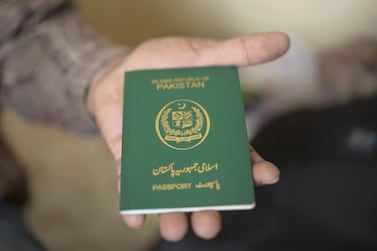I have been made redundant and am urgently hunting for a new job. I have posted in online forums and groups asking for help and have been contacted by two different recruitment companies that say they can find me a suitable position but they both charge fees to place people or to set up interviews for them. One of the companies is asking for a payment of Dh500 before an interview; another demanded a bank transfer of Dh1,200 plus VAT, which they say will guarantee three interviews.
I haven't applied for a job for a few years but have not heard of this before. My friend does not think this is legal but I really need to find work. Before I spend some of the little money I have at the moment, is this the normal way to go about things? DB, Dubai
Any recruitment agency operating in the UAE that asks candidates for a fee is breaking the law. This is nothing more than taking advantage of people and is invariably a scam. The standard practice is that employers pay recruitment companies to find employees, not the other way around.
The Ministry of Human Resources and Emiratisation has stated on many occasions that this practice is illegal. It has closed and prosecuted several companies for this kind of fraudulent practice over the past few years. Anyone who is aware of companies operating in this illegal manner can report them to the Ministry using their main helpline number, 800 60.
I am an Abu Dhabi resident but I went to the UK in mid-February to visit family and due to the latest restrictions, I cannot return for a while. My boss is being great and I can do a lot of my work remotely on my laptop but someone has mentioned to me that I would have to pay UK tax if I stay here and work from the UK. I left the UK three years ago and don't come back much but now I am worried as I don't have a high income and paying tax would cause me a problem as I have little savings. Will I have a problem? ME, Abu Dhabi
The UK has a set of rules regarding someone’s status as a resident and their liability to pay UK income tax and these were updated in the Statutory Residency Test that came into effect in April 2013. In brief, a person’s status as resident or non-resident for tax purposes is dependent on the time they spend in the UK and the amount of time that a person can spend there is based on ‘connecting factors’. The standard 90-day rule disappeared when this new legislation came into force.
Connecting factors include such things as having accommodation available for use, immediate family being UK resident, time spent in the UK in previous tax years and carrying out work. I am summarising as it is a complex topic but ME has confirmed she does not own a property in the UK, is single, and has been staying with her parents.
In such a situation she would usually be able to spend up to 183 days in the UK before being considered tax resident but there is a further rule which will catch out many people. This is the substantive work test and this states that if someone carries out work, of more than three hours a day, for 40 days in a tax year, they will be deemed UK tax resident and liable to UK income tax on overseas earnings.
There is an exemption for aircrew and certain other occupations but this applies to most people. If, therefore, ME works in the UK for 40 days in a single tax year she will be considered tax resident and would be liable to pay tax on her UAE income.
The UK tax year runs from April 6 to April 5, so even if she is working there for a UAE company, as she arrived in mid-February, she will not breach the substantive work test in the 2019/20 tax year and so not be liable to pay UK income tax in the current tax year.
The clock starts ticking again from April 6 so she would ordinarily need to watch the days of work carried out if she does not return soon after the start of the next tax year. HMRC (Her Majesty’s Revenue and Customs) has announced it will consider special treatment for expatriates forced to stay longer in the UK due to the current exceptional circumstances. Note that this situation is different in respect of ‘income arising in the UK’ such as property income.
Keren Bobker is an independent financial adviser and senior partner with Holborn Assets in Dubai, with more than 25 years’ experience. Contact her at keren@holbornassets.com. Follow her on Twitter at @FinancialUAE
The advice provided in our columns does not constitute legal advice and is provided for information only







